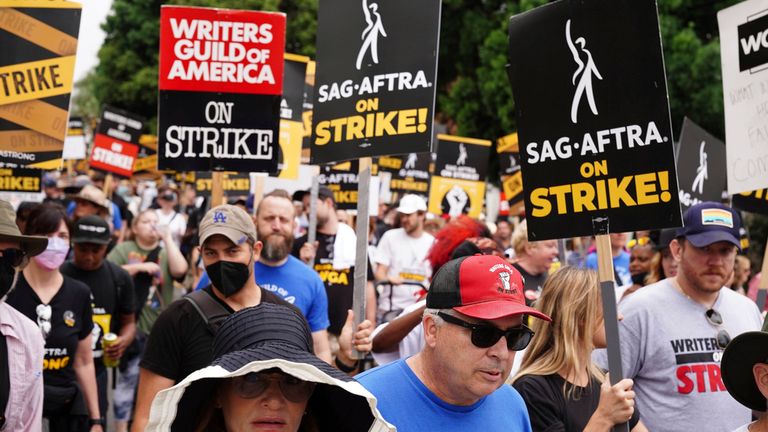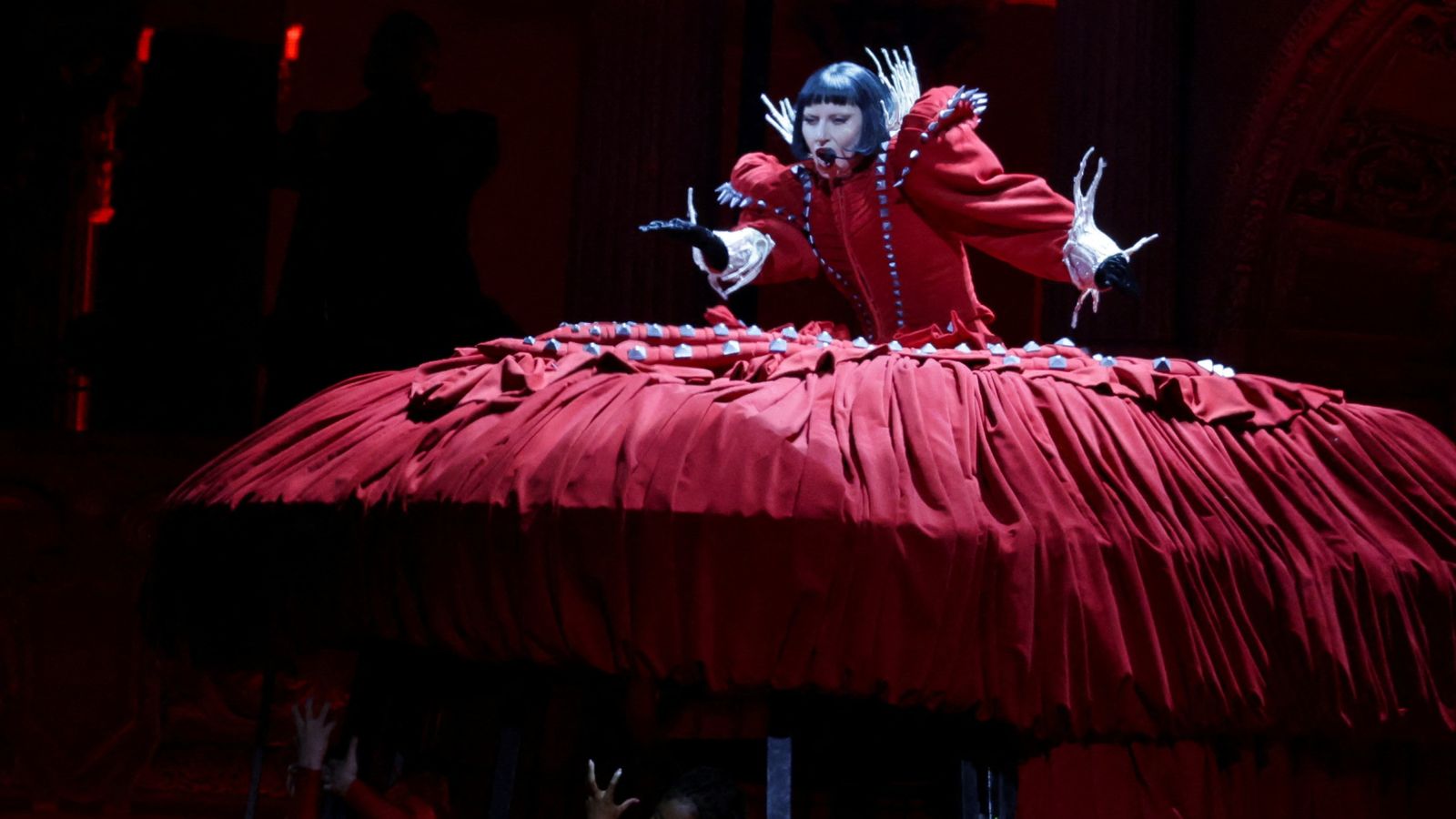ARTICLE AD BOX
Donald Trump's plan to put a 100% tariff on films made outside the US could be "a knock-out blow" to the sector in the UK, a broadcasting union has said.
The president has said he will target films made elsewhere as part of his ongoing tariff war, to save what he has called the "dying" movie industry in the US.
In a post on his social media platform Truth Social, Mr Trump said he had authorised government departments to put a 100% tariff "on any and all movies coming into our country that are produced in foreign lands", and described the issue as a "national security threat".

Responding to his post, Philippa Childs, head of the Broadcasting, Entertainment, Communications and Theatre Union (BECTU), said such a move could seriously damage the UK film sector - which is "only just recovering" from the impact of the pandemic, when many productions were delayed or cancelled.
"The UK is a world leader in film and TV production, employing thousands of talented workers, and this is a key growth sector in the government's industrial strategy," she said.
"These tariffs, coming after COVID and the recent slowdown, could deal a knock-out blow to an industry that is only just recovering and will be really worrying news for tens of thousands of skilled freelancers who make films in the UK."
Ms Childs called on the government to "move swiftly to defend this vital sector, and support the freelancers who power it, as a matter of essential national economic interest".

It is unclear how the tariff scheme would affect international productions, such as the upcoming Mission: Impossible - The Final Reckoning, which is filmed in the US as well as other countries around the world.
Much of the 2023 box office smash Barbie was filmed at the Warner Bros Leavesden studios, in Hertfordshire, as was Wonka and 2022 hit The Batman, while the vast majority of James Bond films were shot at Pinewood Studios, in Berkshire.
Kirsty Bell, chief executive of production company Goldfinch, said Mr Trump was "right to address the fact that there's a decline in the entertainment sector" - but the issue is not foreign films taking precedence over domestic films.
"It's that, firstly, films are cheaper to make overseas, because of lack of tax credits in certain places... the unions, the lower cost of labour, and buying budgets have been drastically reduced over two years, all driven by the change in viewing habits."
She also highlighted that people aren't going to the cinema as much and that the industry is "entirely changed" due to the rise of social media platforms and content creators.
"The answer is not tariffs if he's trying to kick-start the industry in Hollywood," she said. "It's developing an ecosystem for film-making that is entirely different to what has been before. There's seismic changes in how the entertainment industry is structured needing to happen."
A government spokesperson said talks on an economic deal between the US and the UK were ongoing - "but we are not going to provide a running commentary on the details of live discussions or set any timelines because it is not in the national interest".
The latest tariff announcement from Mr Trump is part of a wider crackdown on US imports.
In a news conference outside the White House in April, he outlined a 10% baseline tariff on goods from other countries, with varying levies allocated - later increasing the tariff on Chinese goods to 145%.
US film and television production has been hampered in recent years, with setbacks from the Hollywood strikes of 2023 and the recent wildfires in the Los Angeles area, as well as the pandemic.
Last year, the UK government introduced the Independent Film Tax Credit, which allows productions costing up to £15m to benefit from an increased tax relief of 53%.

 9 hours ago
3
9 hours ago
3







 English (US)
English (US)